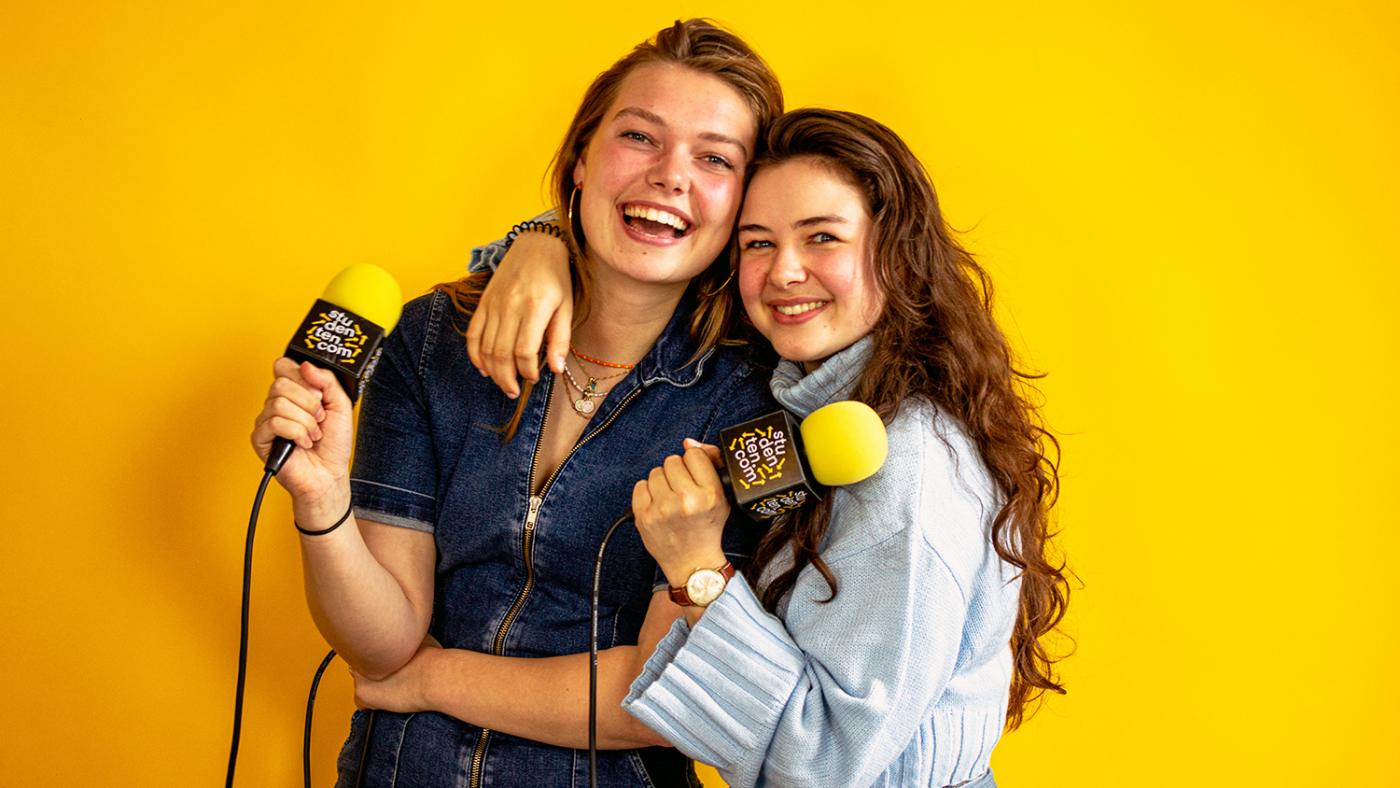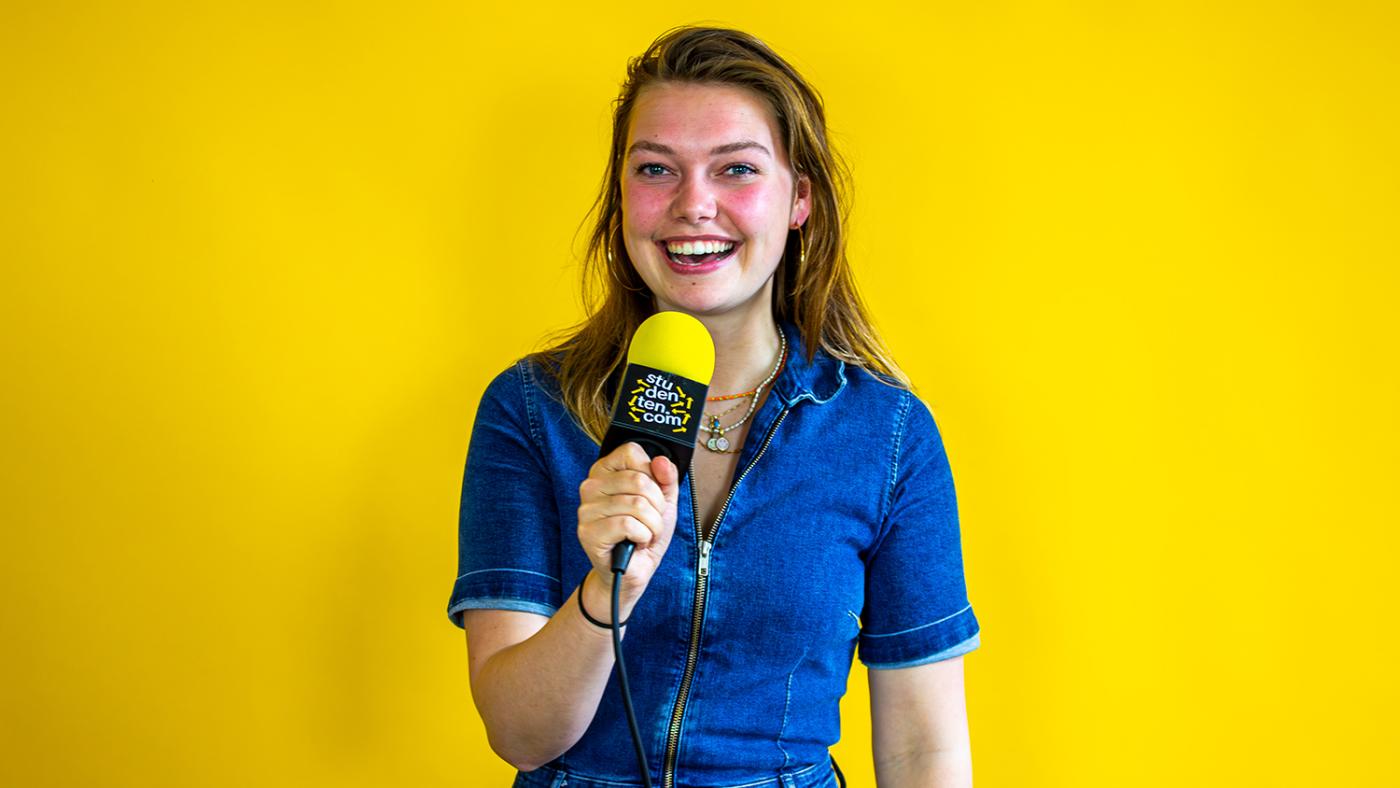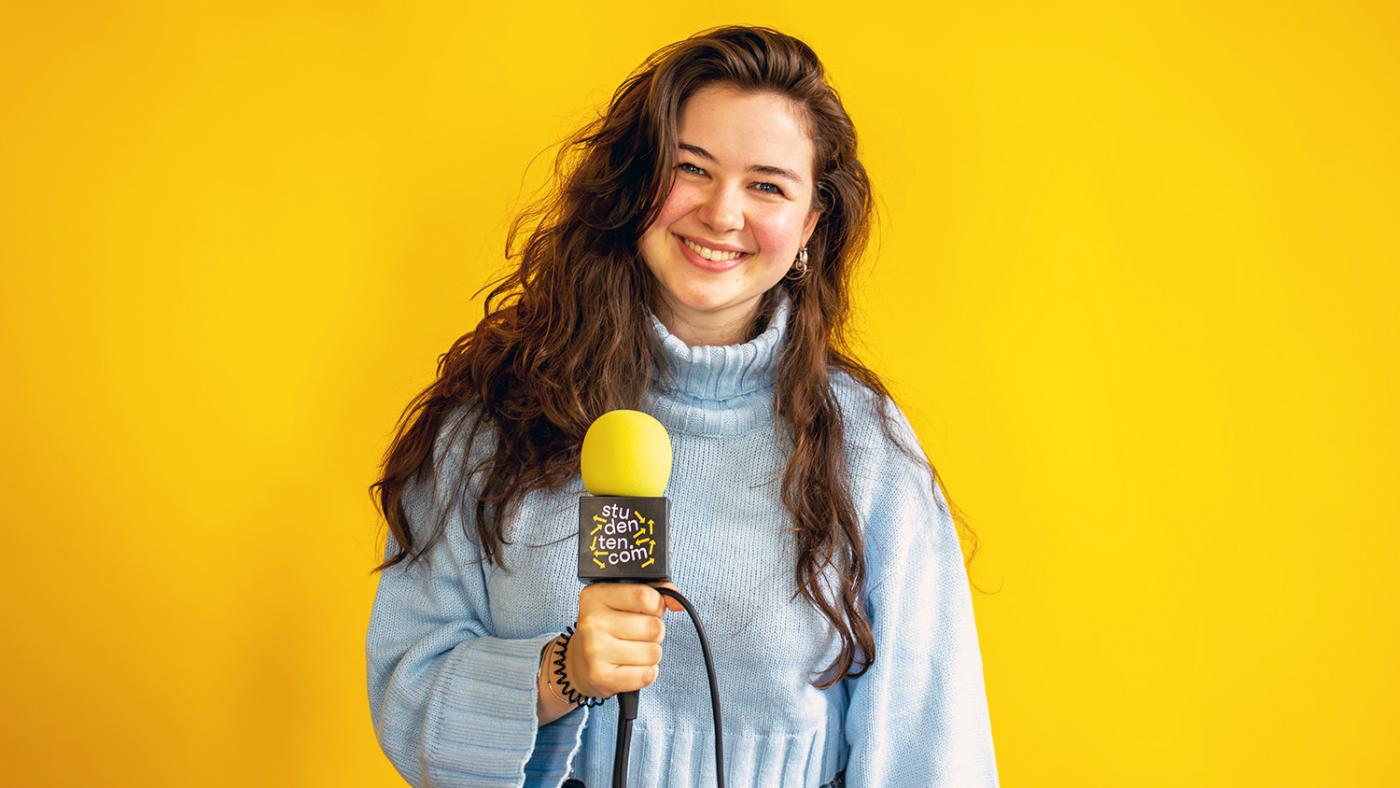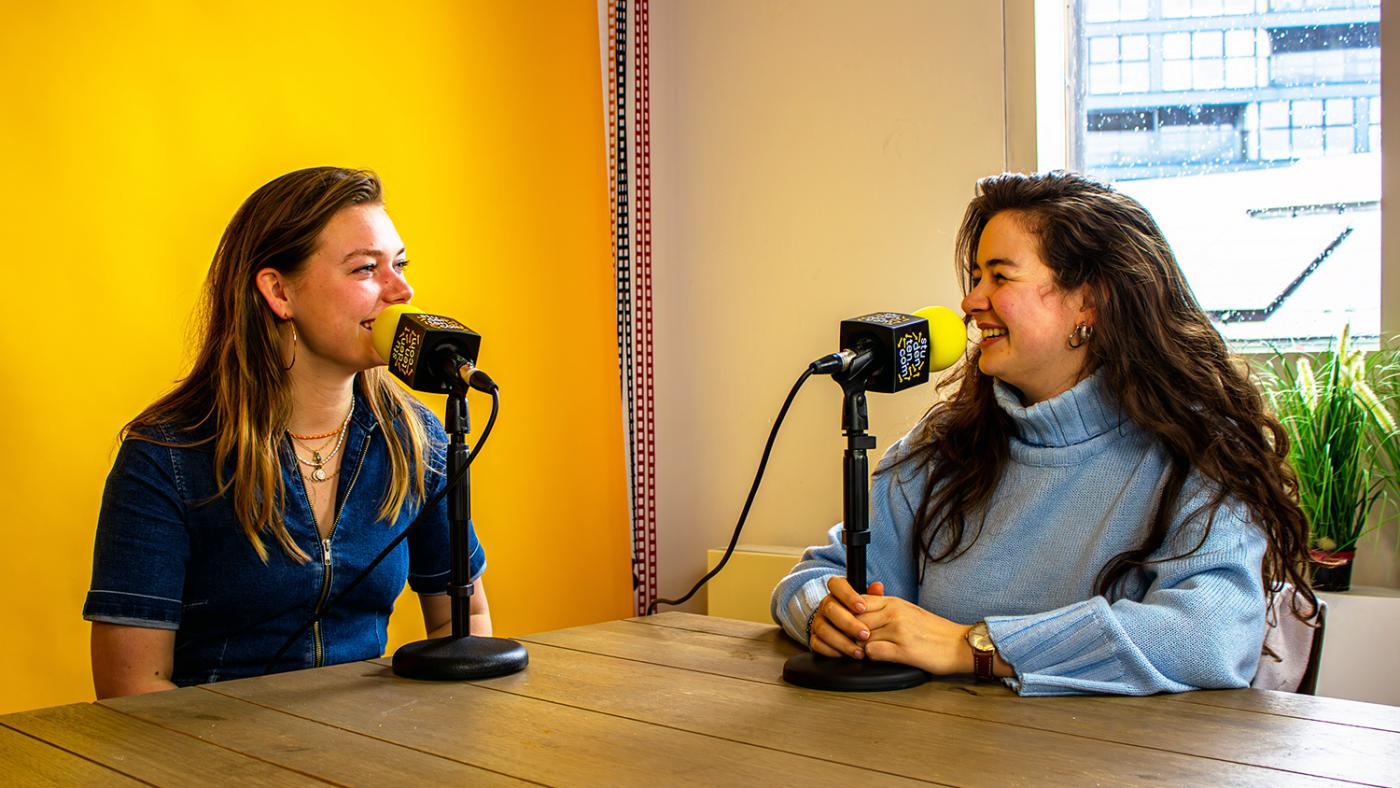With students' stories
Students Annemoon and Tess host a podcast with over 50,000 listeners

It was through a WhatsApp group for members of the student association Veritas that Annemoon and Tess heard about the vacancy to host the popular podcast, which is produced by the website Studenten.com. There was no need to write a motivation letter; instead, they had to record a voice memo. Tess, who is in her third year of Psychology: "That was very uncomfortable. You're kind of telling a story without any feedback and you don't know if people will like it. It's enthusiastically talking to a wall." Annemoon, a second-year student of Communication & Information Studies, tried recording her memo as many as 20 times before finally being satisfied with the result.
The two 20-year-olds had no experience with radio making but they were well acquainted with the topic covered by the podcast: student life. "It just seemed like a fun thing to do," says Annemoon. "I had never made a podcast before but the other students who hosted the previous seasons of the show showed us the ropes."
In this podcast, the hosts share their personal experiences, tackling a different topic each week. They talk about things like drugs, sex, nightlife and looking for a room, to name but a few topics. It didn't take long for the two UU students to start getting feedback from their peers. "On one of the episodes, we talked about peeing in the shower and I admitted that I do pee in the shower at my boyfriend's place sometimes," she says with a laugh. "After that, his roommates messaged me and I got lots of nice comments from other listeners."

Annemoon
What do you think is the secret to the podcast's success?
"People's experiences at university can change greatly, which makes the podcast accessible to a broad group of students," says Tess. "The dynamic between the hosts is also excellent. We are all very excited and you can hear that." To Annemoon, the success can be attributed to the curious topics and relatable stories. "We share quite a lot of things about our lives. Mostly fun things but we also talk about our insecurities, for example. The podcast got super popular when it was hosted by Pleun and Dienke. So, when we took over, I assumed that if the new season flopped, it would be our fault. Fortunately, it didn't happen."
Is there anything you can't say on a podcast?
According to Annemoon, they can't be specific about certain details, such as revealing someone's name. Tess: "If you have a really good story from someone close to you, you just say: I once heard that... That way, no one knows who it's about." Sometimes the girls slip up and the undesired part gets cut when editing. "Sometimes you start telling a story and then you suddenly think: 'Oh no, actually, I'd rather not share this. I'm really exposing someone now, let's take it out."

Tess
Sometimes you talk about topics that can make you pretty vulnerable, like sex and drugs.
Annemoon: "I had to get used to that at first. I still do, actually. But we don't say anything we don't want to say. We can indicate beforehand what we don't want to discuss or whether something is sensitive to us. We don't do anything we don't want to do. When it comes to sex, I might be more on the prudish side after all."
Tess: "When I'm in the studio with a microphone in front of my face, I feel like I can say anything. Normally, I wouldn't be so quick to start talking about peeing in the shower. But, in general, I try to mention that I'm excited about certain topics as I think that it humanises things and people will not be so quick to judge. I don't want people to get a certain image of me."
Do you want to break taboos with the podcast?
Annemoon: " It's a light-hearted podcast but some topics are actually very appropriate to approach. I find the phenomenon of a ghost student fascinating, for example. That's what we call people who pretend to be studying for their friends and family but they're not actually enrolled. I sometimes struggle with the fact that our parents expect us to get high grades, while we also want to have a bit of a social life."
Is there any no-go in terms of subject matter?
Tess: "The only thing I consciously choose not to tell are things about my partner. I do talk about my relationship but I don't reveal anything about my boyfriend because it's not my place to do that." Annemoon: "Sex is a very private thing to me. I can talk about it just fine but I wouldn't talk about my own sex life too extensively."

Some people think that you can't have a relationship with your roommate. What do you guys think about that?
Annemoon: "Of course you can, you can fall in love with your roommate. When you live together, you get to know each other quite well. So, if one of my roommates falls in love with another, I will be nothing but happy for them even though it's not nice to share a home with a couple. Then I guess one of them would have to search for another place.
Tess: "It can bring a different dynamic in the house and you don't want it to change. If they have an argument and the whole house joins in, that really does suck for the rest of the house."
You live in Utrecht, but Tess grew up in Amsterdam. Which city is more fun?
Annemoon: "Utrecht."
Tess: "I would say Amsterdam but Utrecht is 100 percent better as a student city. Utrecht is smaller and more student-oriented. Amsterdam is just too touristy. You really have to seek out the student life there. In Utrecht, it's more like I have to avoid student life. I love that everything is within walking distance here, although I can really appreciate the diversity of Amsterdam. Utrecht is so very white, I think. I really had to get used to that. I'm white myself but it was weird to walk down the street here and think that everyone looks alike."
Do people exaggerate when talking about abusive behaviour among students or is that a real problem?
Annemoon: "It is definitely not exaggerated. Our student association does not tolerate it in any way. You can get expelled or suspended if you cross the line. I never felt unsafe there but I did elsewhere when going out. People call you names, hiss after you, and touch you without your consent. That happens a lot.”
Tess: "In Utrecht, I often feel less safe than in Amsterdam. I get whistled at or yelled at much more. Even in broad daylight on Nobelstraat and I think: "How come?" I have never really felt unsafe but there are situations when I walk or cycle with my phone in my hand, thinking: if worse comes to worse, I can call 112."
"When it comes to the discussion, big steps have already been taken. I think we need to focus more on preventing it. At our association, for example, there are courses you can attend, which teach you how to intervene if you witness anything. But the subject is discussed during the introduction wees as well, they tell you what you can and cannot do."
Annemoon: "I also think that the waiter and security personnel from clubs and pubs should pay more attention to that as well. But I can also imagine that it might be hard to do it sometimes as it happens so sneakily. I have also heard girls say that they avoid going to certain pubs because they always get pinched in the buttocks there."
Tess: "It's implied that this is a problem that mainly happens to women but I have heard stories of men being grabbed by the balls by women as well. This happened to a friend of mine the other day. It seems to me that it's taboo to say that women are not only victims."